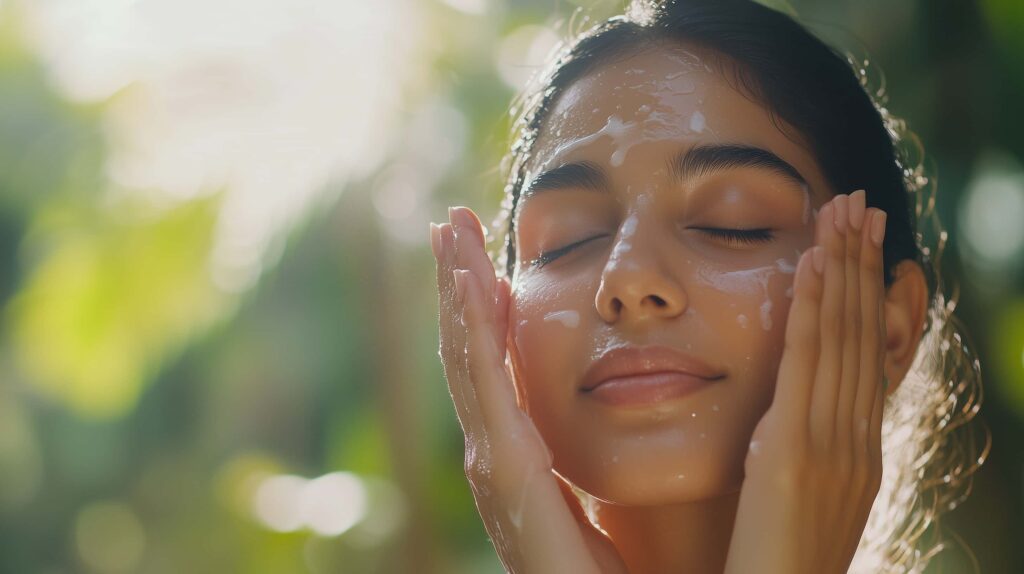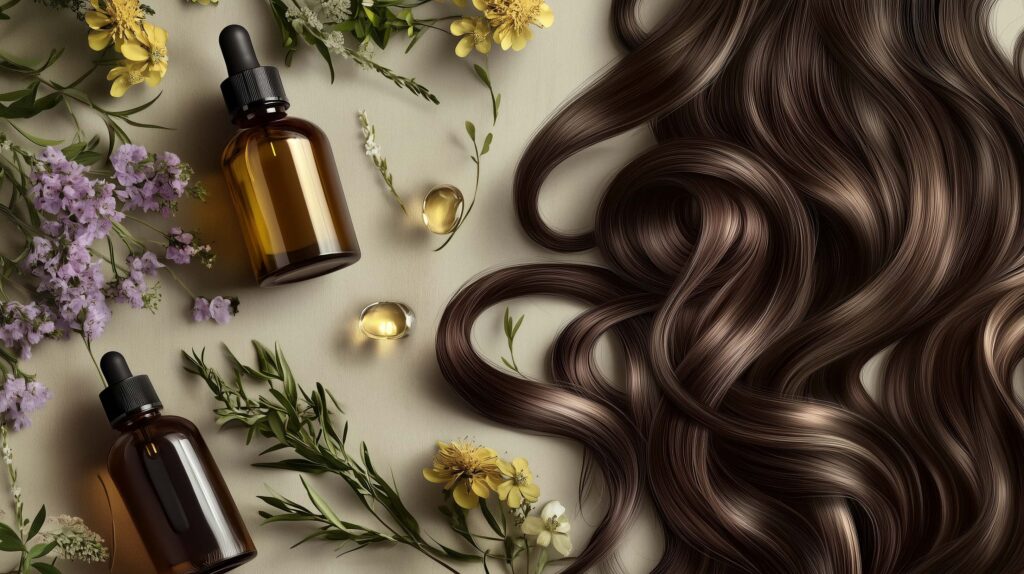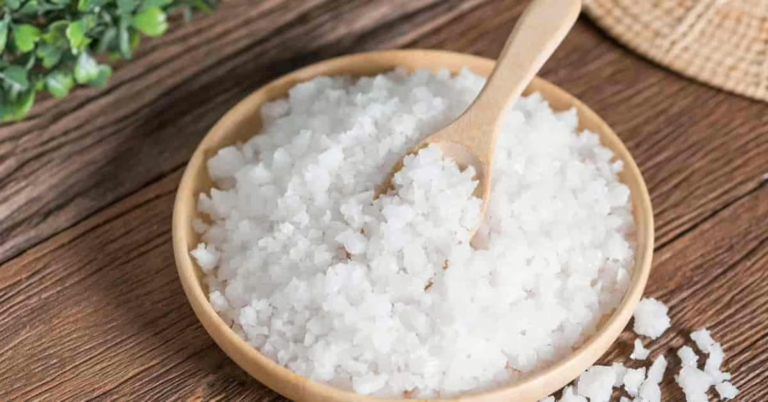10 Post Beach Hair Treatments to Undo Salt & Sun
After a fun day at the beach, you might find your hair feeling dry, frizzy, and lifeless. Salt water, harsh UV rays, and the overall beach environment can wreak havoc on your locks. But don’t worry—you don’t have to splurge on expensive salon treatments to restore your mane. In this guide, you’ll discover 10 genius, natural fixes that can help repair and revive your hair. These remedies are simple, effective, and perfect for anyone looking to turn post-beach damage into healthy, shiny hair—all while keeping things friendly and approachable.
Why Does Beach Water & Sun Wreck Your Hair?
When you spend a day at the beach, your hair is exposed to several damaging elements. Salt water is a major culprit—it acts like a harsh detergent that strips away your hair’s natural oils, leaving it dehydrated and brittle. Think of it as nature’s way of rinsing your hair, but without the gentleness of a proper shampoo. Additionally, UV rays from the sun weaken the hair’s protein structure, which can lead to split ends and breakage.
Humidity and heat further exacerbate these effects by causing your hair to swell and then shrink rapidly, which disrupts the cuticle—the outer layer of your hair that protects it. When the cuticle is damaged, moisture escapes easily, and your hair loses its shine. In simpler terms, the combination of salt, sun, and the often humid beach atmosphere creates a perfect storm for hair damage. By understanding these factors, you can better appreciate why natural, hydrating treatments work so well in restoring your hair’s health.
This section builds credibility by using easy-to-understand science and relatable analogies, ensuring you feel empowered to take action with the fixes presented later on.
10 Post-Beach Hair Fixes You Need to Try Today
Here are 10 effective fixes to help you restore moisture, shine, and strength to your post-beach hair. Each treatment leverages natural ingredients and simple steps that you can easily incorporate into your routine.
1. Coconut Oil Overnight Mask
Coconut oil is a powerhouse when it comes to hydration. It penetrates deeply into the hair shaft, helping to restore lost moisture and repair damage caused by salt water.
Why It Works:
The natural fatty acids in coconut oil bind with the protein in your hair, reducing protein loss and preventing further damage.
How to Use:
Warm a small amount of virgin coconut oil and apply it evenly to your hair, focusing on the ends. Wrap your hair in a soft towel or shower cap and leave it on overnight. In the morning, wash your hair with a gentle shampoo.
Pro Tip:
For maximum benefits, use cold-pressed, unrefined coconut oil—it retains all its natural nutrients.
2. Aloe Vera + Honey Hydration Treatment

Aloe vera is renowned for its soothing and moisturizing properties, while honey acts as a natural humectant that draws moisture into your hair.
Why It Works:
Together, these ingredients help to restore hydration, soothe any irritation from sun exposure, and improve the overall texture of your hair.
How to Use:
Mix freshly extracted aloe vera gel with a tablespoon of raw honey. Apply the mixture generously to your hair and scalp, leave it on for 20-30 minutes, and then rinse thoroughly with lukewarm water.
Pro Tip:
Opt for organic aloe vera and raw, unpasteurized honey to ensure you’re getting the most potent natural benefits.
3. Apple Cider Vinegar Rinse
Apple cider vinegar (ACV) is a favorite in natural hair care due to its ability to balance the scalp’s pH and remove salt residue.
Why It Works:
ACV restores your hair’s natural acidity, which helps to smooth the cuticle and enhance shine. It also helps eliminate any buildup from salt water and environmental pollutants.
How to Use:
Dilute one tablespoon of ACV in a cup of water and pour it over your hair after shampooing. Gently massage it into your scalp, let it sit for a couple of minutes, then rinse thoroughly with cool water.
Pro Tip:
Use this rinse no more than once a week to prevent your hair from becoming too dry.
4. Rice Water Protein Treatment

Rice water is rich in vitamins and minerals that strengthen hair and promote smoothness. Its protein content helps to repair and reinforce the hair cuticle.
Why It Works:
The starches in rice water coat the hair, which can reduce friction and make your locks appear shinier and healthier. It’s especially beneficial for those suffering from brittle, damaged hair.
How to Use:
Soak a cup of rice in water for 24 hours, strain out the water, and use it as a final rinse after washing your hair. For an extra boost, allow the rice water to ferment for 24 hours before using it.
Pro Tip:
For best results, use this treatment once a week to gradually rebuild your hair’s strength.
5. Banana + Yogurt Hair Mask
Bananas and yogurt together make an excellent conditioning treatment for post-beach hair. Bananas are rich in vitamins and minerals, while yogurt provides proteins that nourish and repair damaged hair.
Why It Works:
This mask works by delivering a dose of moisture and essential nutrients directly to your hair strands. It helps to tame frizz and adds a natural shine without weighing your hair down.
How to Use:
Mash one ripe banana and mix it with half a cup of plain yogurt until you achieve a smooth paste. Apply the mixture evenly to your hair, concentrating on the damaged ends. Leave it on for 30 minutes before rinsing with cool water.
Pro Tip:
Adding a teaspoon of honey can boost the mask’s hydrating properties even further.
6. Cold Water Rinse (Simple But Powerful!)
A simple cold water rinse is often overlooked but can be a game-changer for your hair’s health after a day at the beach.
Why It Works:
Cold water helps to seal the hair cuticle, locking in moisture and reducing frizz. It also reduces the likelihood of further damage by closing the pores of your hair strands.
How to Use:
After conditioning your hair, finish with a cold water rinse for at least one minute. Make sure to let the water flow through your hair slowly, allowing the cool temperature to work its magic.
Pro Tip:
Avoid hot showers immediately after the beach as they can strip away the moisture your hair desperately needs.
7. Leave-In Conditioner with Argan Oil

A good leave-in conditioner is essential for maintaining moisture throughout the day, and when paired with argan oil, it can create a protective barrier against environmental stressors.
Why It Works:
Argan oil is rich in antioxidants and essential fatty acids that nourish and repair your hair. The leave-in conditioner helps to detangle and protect your hair from further damage.
How to Use:
After washing your hair, apply a small amount of leave-in conditioner mixed with a few drops of argan oil on damp hair. Focus on the mid-lengths to ends, where damage is most apparent.
Pro Tip:
Choose a sulfate-free formula to avoid stripping your hair of its natural oils and keep it looking healthy.
8. DIY Avocado + Olive Oil Mask
Avocado and olive oil combine to create a nutrient-packed mask that works wonders on dry, damaged hair.
Why It Works:
Avocados are loaded with vitamins E and B, which help to nourish and repair hair, while olive oil moisturizes and adds shine. This mask is perfect for those moments when your hair feels extra brittle.
How to Use:
Mash one ripe avocado and mix it with two tablespoons of extra virgin olive oil until you get a smooth, creamy consistency. Apply the mask to your hair, focusing on the ends, and leave it on for 30 minutes before rinsing thoroughly.
Pro Tip:
For an added boost, mix in a teaspoon of honey to further enhance the mask’s moisturizing effects.
9. Silk Pillowcase for Frizz-Free Mornings

Switching your pillowcase can make a surprising difference in your hair’s health. A silk pillowcase minimizes friction, which helps prevent frizz and breakage while you sleep.
Why It Works:
Silk is a smooth fabric that reduces the tugging and friction that often occurs with cotton pillowcases. This gentle surface helps maintain the natural oils in your hair and preserves your hairstyle overnight.
How to Use:
Simply swap out your regular cotton pillowcase for a silk one. As an added bonus, consider loosely braiding your hair before bed to further reduce tangling.
Pro Tip:
Investing in a high-quality silk pillowcase can be a long-term solution not only for your hair but also for your skin.
10. Hydration from Within: Drink Coconut Water
Healthy hair starts from the inside out, and drinking coconut water is a refreshing way to boost hydration and nourish your hair from within.
Why It Works:
Coconut water is rich in electrolytes and essential nutrients that help keep your body—and your hair—hydrated. It supports overall hair health by ensuring that your hair follicles receive the moisture they need to thrive.
How to Use:
Aim to drink 1-2 glasses of fresh coconut water after a day at the beach. This natural drink not only quenches your thirst but also helps replenish lost fluids and maintain your hair’s vitality.
Pro Tip:
Avoid sugary drinks that can actually dehydrate your hair, and choose pure coconut water to get the most benefit.
Extra Tips to Prevent Beach Hair Damage Next Time
Prevention is always better than cure. By taking a few proactive steps before hitting the beach, you can significantly reduce the damage caused by salt water and sun exposure.
- Wear Protective Gear:
Consider wearing a stylish hat or scarf. This not only shields your hair from direct sunlight but also adds an element of fashion to your beach day. - Use Pre-Sun Hair Serum:
A good pre-sun serum can create a protective barrier on your hair, helping to reduce the absorption of salt and UV rays. Look for formulas that contain natural oils and antioxidants. - Rinse Before Swimming:
Wet your hair with fresh water before entering the ocean. When your hair is saturated with clean water, it absorbs less salt water, minimizing damage. - Opt for Loose Hairstyles:
Braiding or loosely tying up your hair can prevent tangling and reduce friction. Tight hairstyles can cause breakage when your hair is already fragile from sun exposure.
By incorporating these simple habits into your beach routine, you can keep your hair healthier and reduce the need for intensive repairs afterward. It’s all about making small adjustments that add up over time, ensuring that your hair stays as vibrant as your beach memories.
Natural vs. Chemical Treatments: What’s Best?
When it comes to repairing post-beach hair damage, you might wonder whether to go the natural route or opt for chemical treatments. While salon treatments like keratin or smoothing treatments may provide immediate results, they often involve chemicals that can further damage your hair in the long run.
Natural Treatments:
- Pros: They’re gentle, affordable, and packed with natural nutrients that help your hair recover gradually. Ingredients like coconut oil, aloe vera, and avocado not only restore moisture but also strengthen your hair over time.
- Cons: Natural remedies might take longer to show visible results, and you may need to be consistent with your routine.
Chemical Treatments:
- Pros: They can offer quick fixes and dramatic improvements in texture and shine.
- Cons: Chemicals often come with side effects, such as dryness or further damage, especially if your hair is already compromised by environmental stressors.
For long-term, sustainable hair health—especially after regular beach visits—natural treatments are usually the safer and more beneficial choice. They work with your hair’s natural structure rather than against it, promoting overall health and resilience without harsh side effects.
FAQs: Quick Answers to Your Beach Hair Woes

Q: Can I fix beach-damaged hair overnight?
A: Some treatments, like the coconut oil overnight mask, can improve moisture levels overnight. However, full repair is a gradual process that requires consistent care.
Q: Does saltwater actually damage hair?
A: Yes, saltwater strips away your hair’s natural oils, leading to dryness and frizz. It can weaken your hair structure, making it more susceptible to breakage.
Q: Should I shampoo every day after swimming?
A: No. Daily shampooing can further strip natural oils. Instead, consider using a gentle co-wash or rinse with fresh water to help maintain moisture.
Q: Are natural remedies as effective as salon treatments?
A: They can be. While salon treatments offer instant results, natural remedies work slowly but provide long-term benefits without harsh chemicals.
Final Thoughts: Your Hair Will Love These Fixes!
You deserve to feel confident and proud of your hair—even after a day at the beach. With these 10 genius fixes, you have a variety of natural, easy-to-follow solutions to restore moisture, shine, and vitality to your locks. Experiment with different treatments, and discover what works best for you. Remember, consistency is key—small changes in your hair care routine can lead to big improvements over time. Your journey to healthier, happier hair starts now. So, why not try these tips and see the transformation for yourself?
Which fix are you excited to try? Drop your favorite tip in the comments below and share your post-beach hair recovery story with us!
By following this guide, you’re equipped with practical, science-backed, and natural solutions that not only fix your post-beach hair woes but also help you maintain healthy, vibrant hair all year round. Enjoy the sun, the sea, and now, gorgeous hair every day.







